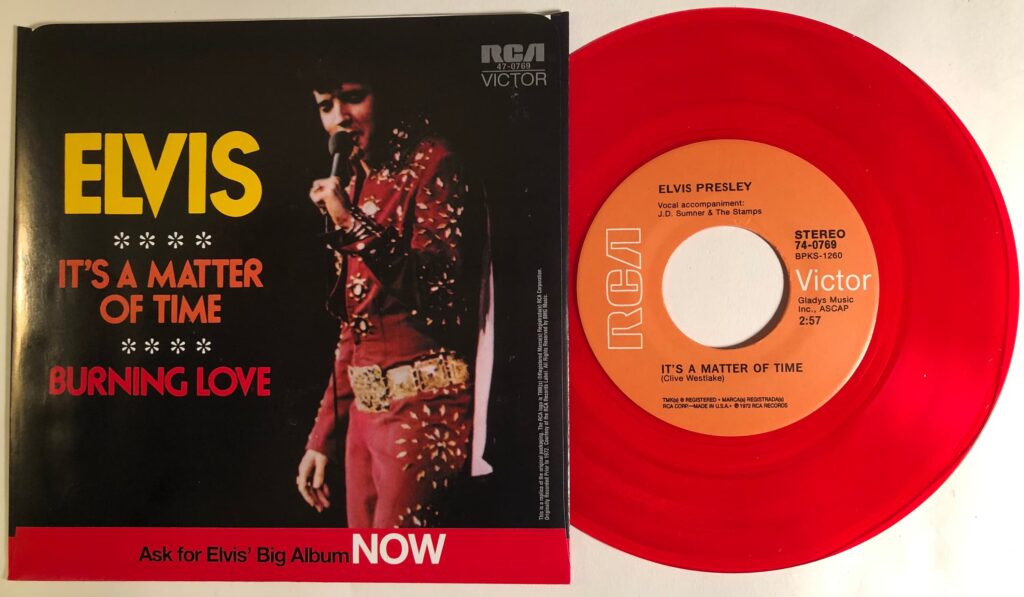
Burning Love: A Fiery Farewell to the King’s Rock and Roll Roots
Oh, The year 1972. It feels like a lifetime ago, doesn’t it? The world was a different place. The air was thick with change, and the sounds of rock and roll, once a raw and rebellious roar, had begun to mellow into something more polished, more sophisticated. Yet, in the midst of this shift, a final, brilliant flash of fire erupted from the very heart of the movement. That flash was Elvis Presley, and the song was “Burning Love.” It was a late-career surge of pure, unadulterated rock, a glorious throwback that found itself soaring to a peak position of number two on the Billboard Hot 100 chart in the United States, his highest-charting single since “Suspicious Minds” three years earlier. It was a remarkable achievement for a man who, by this point, was more known for his balladry and romantic crooning.
For many of us who grew up with Elvis, “Burning Love” was a welcome jolt. We’d witnessed his evolution from the rebel with a sneer to the suave Las Vegas showman, a transformation that brought him new audiences but sometimes left us longing for the raw power of his early days. This song, however, felt like a homecoming. The driving beat, the wailing guitars, and that magnificent, soaring vocal performance reminded us of why we fell in love with him in the first place. It was a song that you couldn’t sit still for. It demanded that you move, that you feel the heat and the passion radiating from the speakers. It was, in many ways, a microcosm of his career – a blend of country and gospel roots with the rebellious spirit of rock and roll. The backing vocals by the legendary J.D. Sumner & The Stamps Quartet added a layer of gospel fervor that only amplified the song’s intense emotional core, creating a sound that was both electrifying and deeply soulful.
The meaning of “Burning Love” is quite straightforward yet deeply resonant. It’s a song about being consumed by a love so intense, so overpowering, that it feels like a fire. The lyrics are a visceral cry of passion, a man pleading for a “little kiss” to “quench this burning flame.” It’s a feeling many of us have experienced, that overwhelming, all-consuming passion of a new romance. But looking back now, through the lens of history, the song takes on an even more poignant meaning. It feels like a swan song, a final, powerful embrace of the music that defined him. It was one of his last major hits, and it served as a fiery and unforgettable reminder of the rock and roll heart that beat beneath the rhinestones and the ballads. It was a moment of pure, unadulterated genius, a last gasp of rock and roll air before the King’s flame began to fade. And for those of us who were there, listening to it on the radio, it’s a memory that still burns bright.